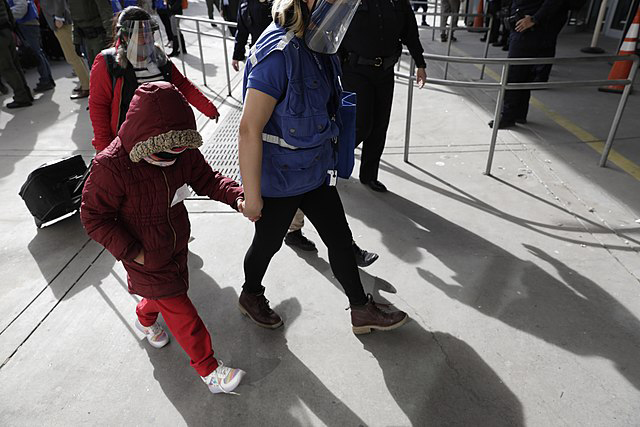
For over six years, I have worked as an interpreter for asylum seekers, primarily assisting Venezuelans, but also individuals from a variety of nationalities. My role has given me a front-row seat to the harrowing experiences of those fleeing unimaginable horrors. Each story and each person I’ve encountered has profoundly impacted me, reinforcing a fundamental truth: No one leaves their country unless they absolutely must. Many of the children and families I’ve assisted have faced extreme violence — gang conflicts, political persecution, military aggression, and more. I’ve heard over 1,000 stories of people walking for days and even months, crossing deserts, trudging through snow, and braving the treacherous Darien Gap in Central America. They have encountered the most appalling circumstances, from witnessing death and enduring sexual violence to navigating through areas with limited food and water. These experiences are not just numbers; they are real human lives upended by violence and despair.
Take, for example, Julie. A brilliant dentist from a small town in Venezuela, she graduated with high honors, excelling not only as a student but as a researcher. After graduation, she opened her own clinic with the help of a loan. During the week, she worked with paying patients, but on weekends, she devoted her time to poor families who couldn’t afford dental care — providing her services completely free of charge. One day, a soldier visited her weekend clinic and began courting her. She had no interest, and after repeatedly rejecting him, he retaliated by raping her. He threatened her not to go to the police, but she bravely reported the attack anyway. Days later, her clinic was burned down. Cars began following her, and there was even an attempted kidnapping. With the military forces harassing her and the police unable to protect her, Julie had no choice but to flee, risking her life to cross the border. She eventually won her asylum case in the US. Today, she works at a private dental clinic during the week, and on weekends, she continues to care for underprivileged families and children — offering her services free of charge, just as she did back home.
As a Venezuelan, I share a profound connection with these stories. I didn’t want to leave my country; I loved it deeply. But I was forced to, just as many others were. My mother was kidnapped twice, and I faced persecution for my political beliefs. My career was jeopardized due to political affiliations, and I lost friends to violence during protests. These are not isolated incidents but part of a broader, tragic pattern that has forced over eight million Venezuelans to leave their homeland. When you see an immigrant worker or an asylum seeker, it’s easy to overlook the depth of their journey. They may speak with an accent or struggle with the language. Some might be labeled as “exotic,” or even uneducated. But behind these outward appearances lie stories of survival and resilience. Imagine walking through a country where basic necessities like running water, electricity, and medical care are scarce or nonexistent. Imagine the hardship of reaching a new country only to face prejudice and misunderstanding.
The next time you encounter someone whose English isn’t perfect or who looks different from you — consider the unimaginable journey they have endured to get to where they are. Every accent, every foreign name, tells a story of hardship and hope. These individuals did not choose to leave their homes — they were driven away by circumstances beyond their control. Empathy and kindness cost nothing but can make a world of difference. Understanding the trials lived by asylum seekers and immigrants can foster a more compassionate society. Julie’s story, and the stories of countless others, remind us that these are not just headlines or statistics—they are people who had dreams, homes, and families, just like anyone else. In a world where the struggle for survival often overshadows our shared humanity, let us choose to see the person beyond the accent and the story behind the face. Kindness goes a long way. Sometimes, the simplest gestures make the most profound impact. •
Asylum seekers crossing the border at El Paso in 2021. Photo: Glenn Fawcett via Wikimedia Commons.